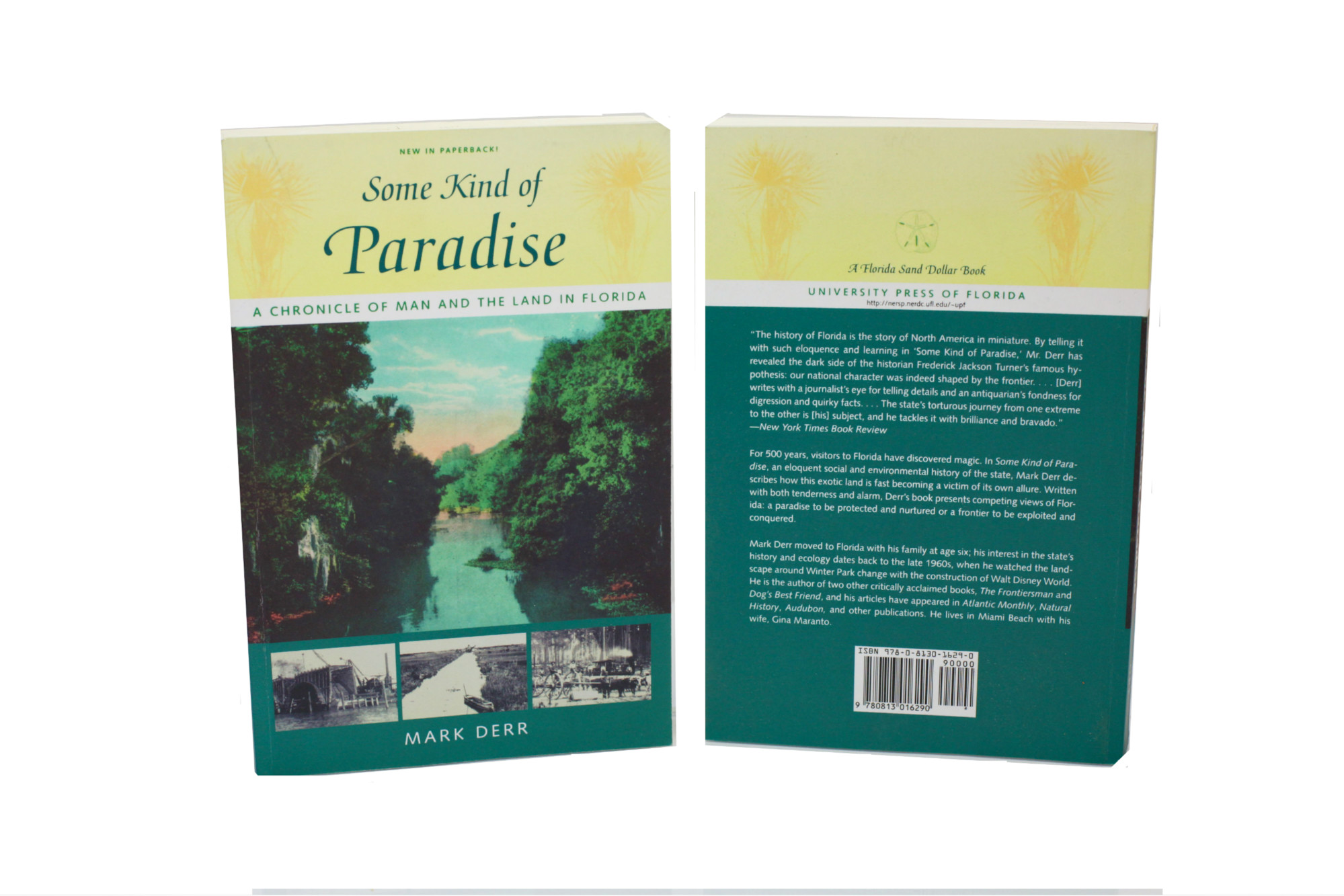Description
By: Mark Derr
For 500 years, visitors to Florida have discovered magic. In Some Kind of Paradise, an eloquent social and environmental history of the state, Mark Derr describes how this exotic land is fast becoming a victim of its own allure.
He begins by examining the period between Reconstruction and the Great Depression, when wealthy capitalists led by Henry Flagler and Henry Plant opened the peninsula to a flood of development by building railroads and luxury hotels.
Turning to the distant past, he describes the geologic origins of the state and early fossil finds. From archaeological data, he stitches together a portrait of the first human inhabitants and their distinct cultures, then follows the thread of time to the "discovery" of Florida in 1513 by Juan Ponce de León, the fall of the indigenous people to European diseases and weapons, and the pattern of conquest and racial violence that continued into the 19th century as white Americans waged a campaign against the Seminole Indians.
Derr keeps his gaze on the land and its people―wreckers and spongers in Key West, cowmen on the "palmetto prairie," speculators and builders from Miami Beach to Seaside, Cuban cigar makers who rolled tobacco while listening to readings from Shakespeare and Marx, and migrant fruit pickers, convict laborers, and the idle rich―the range of dreamers and schemers who have struggled to remake this abundant, fragile wonderland. Written with both tenderness and alarm, Derr’s book presents their competing views of Florida: a paradise to be protected and nurtured or a frontier to be exploited and conquered.





